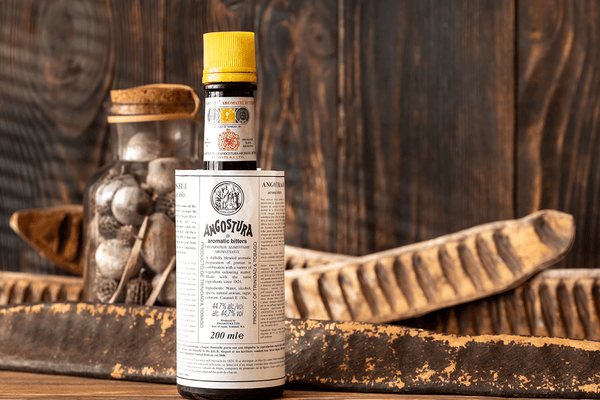COMPARING BOURBON
VS WHISKEY
You might hear some people use whiskey and bourbon interchangeably, but some notable differences exist when comparing bourbon vs. whiskey. Whiskey and bourbon are both distilled spirits made from fermented grains. However, whiskey encompasses various types, bourbon whiskey being one of them. All bourbons are whiskey, but all whiskeys are not bourbon...

Five types of whiskeys exist — American, Canadian, Irish, Japanese, and Scotch. With American whiskeys, you have several different subcategories as well. One of these is bourbon. Discover the characteristics of bourbon vs. whiskey so that you can distinguish them like a pro.
Bourbon vs. Whiskey: Different Origin Dates
Whiskey has a much older origin story when comparing bourbon vs. whiskey. Countries such as Scotland and Ireland produced the spirit over a thousand years ago. Bourbon is a relatively new spirit, dating back to the late 18th century in the United States. It's commonly associated with the southern part of the United States.
Bourbon vs. Whiskey: Where It's Made
Scotland, Ireland, Canada, the United States, and Japan still produce whiskey. Bourbon is distinctly American, with over 90% of production occurring in Kentucky. To be labeled a bourbon, the liquor must originate in the United States.
In theory, whiskey can be made anywhere, provided it is grain-based and aged in wood barrels. However, bourbon made outside of the United States cannot be labeled a bourbon even when it follows all the rules for bourbon production. This definition is the same as Champagne. Only Champagne produced in Champagne, France, can be legally labeled Champagne. Otherwise, the product would be another type of sparkling wine.
Tennessee whiskey also has its own set of rules. To be labeled a Tennessee whiskey, the liquor must be:
- Made from at least 51% corn.
- Distilled in Tennessee.
- Go through the Lincoln County Process (charcoal filtering process).
- Aged in brand-new charred oak barrels.
Bourbon vs. Whiskey: Rules for Production
Production methods are similar when comparing bourbon vs. whiskey, but some differences exist. For one, bourbon must contain a specific mash profile. Whiskey doesn't have the exact requirement. Bourbon must have a minimum of 51% corn mash. The remaining percentage of mash can be any cereal grain, such as wheat, rye, or barley. Corn whiskey differs from bourbon. Corn whiskey has corn mash content that exceeds 80%. However, whiskey producers need to age the product in used or uncharred barrels; otherwise, the liquor would still be bourbon.
Barrel aging is more regulated in bourbon vs. whiskey, where the distillate must age in new oak charred barrels. When bourbon makers use only new oak barrels, they can ensure the bourbon won't get influenced by other distillates. Other whiskey types can age spirits in used barrels, including ones used for bourbons. Used bourbon barrels work for aging Scotch whisky. Used sherry and port casks are also popular options for whiskey aging.
When comparing bourbon vs. whiskey proof levels, the rules for bourbon are more strict. Bourbon must not exceed 125 proof when entering the barrels and be no more than 160 proof when distilled. At bottling, bourbon must be at least 80 proof. Other whiskeys must adhere to proof requirements at bottling. However, they may not need to follow the same rules for distillate strength.
If you see a straight bourbon label, the distillate must have aged for a minimum of two years. The bottle must contain an age statement for a straight bourbon aged for less than four years.
Comparing Bourbon vs. Whiskey: Taste Differences
Bourbon has a distinctive flavor profile, typically offering sweeter notes than other whiskeys. Each distiller's mash profile will add more complex notes to the final flavor profile. The amount of corn in a bourbon typically falls somewhere between 70% and 90%. The more corn in the mash typically means a sweeter bourbon.
You can often tell where whiskey is from by its flavor profile. For example, Scotch typically features smokey and seaside flavors like briny notes. Irish whiskey is usually light with vanilla and floral notes.
Can You Substitute Bourbon for Whiskey in Cocktails and Food?
Understanding whether to use bourbon vs. whiskey in cocktails is essential. Some cocktails historically use bourbon, while others use specific types of whiskeys. Some whiskey enthusiasts are adamant you should not swap them for one another, but other people do not see the problem with using bourbon vs. whiskey as long as you like the taste of the cocktail.
The cocktail flavor shouldn't change much when you use a bourbon with a similar profile. For example, if you have a whiskey cocktail that uses a smokey Scotch, use a smokier bourbon for a similar result, and vice versa. If you have a cocktail that calls for bourbon with sweet and smokey notes, opt for a whiskey with similar characteristics.
Some classic whiskey cocktails include:
- Manhattan: whiskey with sweet vermouth and bitters.
- Whiskey sour: whiskey with lemon and simple syrup.
- Old-fashioned: The original recipe for this cocktail classic called for whiskey, bitters, ice, lemon peel, and a lump of sugar dissolved in water.
Popular bourbon cocktails include:
- Mint julep: the official Kentucky Derby libation made with bourbon, fresh mint, and ice.
Some cocktails have garnered additional fame using bourbon instead of another type of whiskey or spirit, including:
- Bourbon sidecar: a cocktail that uses bourbon instead of cognac.
- Bourbon Manhattan: a drink that uses bourbon instead of rye whiskey for a variation of the original Manhattan.
- Boulevardier: a variation of the Negroni using bourbon rather than gin.
- Bourbon sour: a whiskey sour made with bourbon.
- Kentucky mule: a cocktail that uses bourbon instead of vodka for a variation of the Moscow mule.
When it comes to food recipes that call for one or the other, look for spirits with similar profiles. A wheat whiskey might be the answer if you have a sweet dish that calls for bourbon. For recipes with fruit and dressings, consider rye whiskey instead of bourbon.
Understanding all the differences between bourbon vs. whiskey can be challenging. However, knowing this information is essential to help determine what type of whiskey you enjoy most. Having some variety with your bourbon and whiskey is vital. When shopping for whiskey or bourbon, compare some bottles and labels. It will help you better understand bourbon vs. whiskey and what styles you like best.






